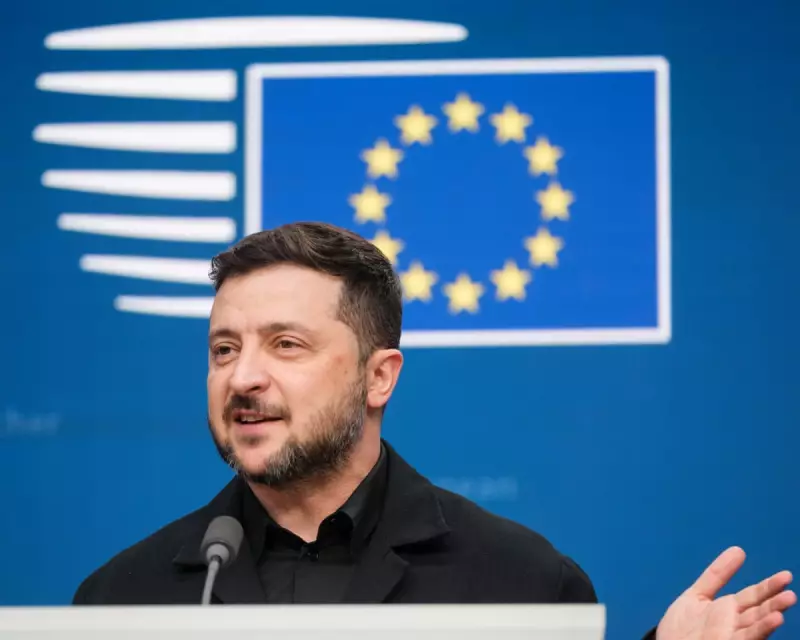
Ukrainian President Volodymyr Zelenskyy has issued an urgent plea to European Union leaders, demanding they stop deliberating and start acting on a crucial proposal: using frozen Russian state assets to fund Ukraine's defence against ongoing aggression.
The High-Stakes Diplomatic Push
In a direct address to European officials, Zelenskyy emphasised that while discussions continue in Brussels, Ukrainian soldiers and civilians are paying the ultimate price on the front lines. "Every day of delay costs lives," the president stated, framing the decision as a matter of moral imperative rather than mere policy.
Billions in Limbo
The proposal centres on approximately €300 billion in Russian central bank assets frozen by Western nations following Moscow's invasion of Ukraine. European institutions have been debating the legal and economic implications of repurposing these funds for nearly three years of conflict.
Zelenskyy's intervention comes at a critical juncture, with Ukrainian forces facing intensified Russian attacks and dwindling ammunition supplies. The president argued that the frozen assets represent not just financial resources but "justice in action" - making the aggressor pay for defence against its own aggression.
Legal Hurdles vs. Moral Imperative
While many EU member states support the concept in principle, complex legal questions about sovereign immunity and potential repercussions for the euro have slowed progress. Some nations have expressed concerns about setting precedents that might affect global financial stability.
However, Zelenskyy countered these arguments by pointing to the extraordinary nature of Russia's full-scale invasion. "This is not a theoretical legal debate," he stressed. "This is about saving a nation from destruction."
The Growing Consensus
Recent months have seen growing momentum behind the asset transfer proposal, with several key European leaders publicly endorsing more aggressive action. The United States has similarly pushed for creative solutions to unlock funding without burdening Western taxpayers.
As one EU diplomat noted anonymously, "The moral argument is becoming increasingly difficult to ignore as the human cost mounts."
What Happens Next?
The coming weeks are expected to be decisive, with EU technical teams working on implementation mechanisms that could survive legal challenges. Options under consideration include:
- Using interest earned on frozen assets for military support
- Creating a special-purpose vehicle to manage fund distribution
- Issuing bonds backed by the frozen assets to generate immediate funding
Zelenskyy made clear that Ukraine cannot afford to wait for perfect solutions, urging leaders to "act with the courage this moment demands." With winter approaching and battlefield conditions deteriorating, the pressure on European capitals has never been greater.





